Conference discusses new drivers of economic growth
Representatives from the Central Economic Commission, the Ministry of Planning and Investment, the Ministry of Science and Technology, and the Ministry of Information and Communication co-hosted the conference. It saw the participation of many leaders from ministries, organisations, businesses, and experts from home and abroad.
Many vital issues in the current Vietnamese economy were brought to the table, such as creating a new development space by implementing guidelines on regional development and national master plans, exploiting signed free trade agreement (FTAs), and digital transformation.
Identifying opportunities and challenges in energy transition and accelerating the removal of bottlenecks for science, technology, and innovation development were also key conference topics.
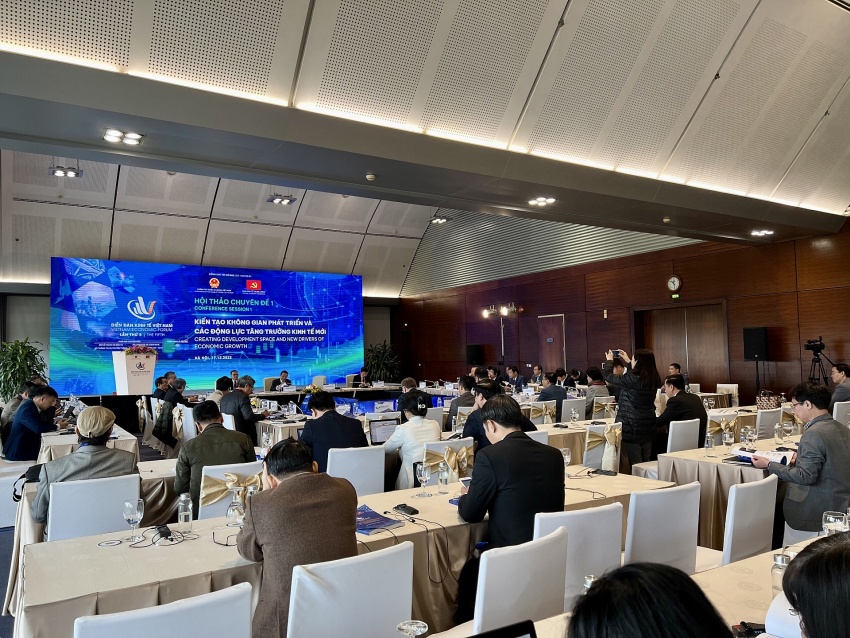 |
| Attendees at the event |
Speaking at the conference, Nguyen Thi Thu Trang, director of the Centre for WTO and International Trade, the Vietnam Chamber of Commerce and Industry (VCCI), said that in 2022, Vietnam’s trade activities and trade with FTA markets, in particular, had achieved impressive results.
She cited that total import and export turnover in the first 11 months of 2022 reached $673.8 billion, up 11.8 per cent over the same period last year, in which exports reached $342.2 billion, up 13.4 per cent. However, headwinds are strengthening in the fourth quarter of 2022, and are expected to last until 2023.
In that context, she pointed out that the advantages of the FTAs, especially improved tariff preferences, were considered an important solution for Vietnamese businesses, improving their competitive ability to keep and even expand market share in these FTA regions.
Trang said: “To do this, Vietnam needs to implement appropriate solutions both in the immediate and long term. The VCCI recommends that the government, ministries, and branches implement direct support measures to assist businesses in maximising taking advantage of FTAs."
"Such support could include organising campaigns to promote Vietnamese product brands designed specifically for each market, and building official channels to connect Vietnamese businesses with foreign partners. Regarding long-term solutions, it is necessary to promote negotiation and signing of new FTAs, establish annual programs to evaluate the effectiveness of FTA implementation, and so on,” she said.
David Gottlieb, acting Deputy Ambassador of the Australian Embassy in Vietnam, said in transitioning to net-zero, one of the biggest challenges would be to manage the stability, reliability, and affordability of rapid renewables expansion.
He cited the latest draft PDP8 notes that by 2030 Vietnam needs around $15.2-15.6 billion in grid infrastructure investment. Market forces, particularly the availability of finance, will be the key driver in the transition away from coal, as renewable power is developing a cost advantage relative to the coal-fired power plant fleet.
He pointed out that as challenging as this transition would be, the opportunities were immense. New opportunities will bring new jobs and new investments and drive down power bills at the same time.
“The Australian government is increasing support for partners in Southeast Asia to help countries transition to net-zero. Vietnam is central to these efforts. We are expanding our support for Vietnam in its energy transition and achieving ambitious climate targets. Deepening energy cooperation is a key pillar of the Enhanced Economic Engagement Strategy launched in 2021. We hope it will be a central plank of our bilateral relationship in the coming years,” said Gottlieb.
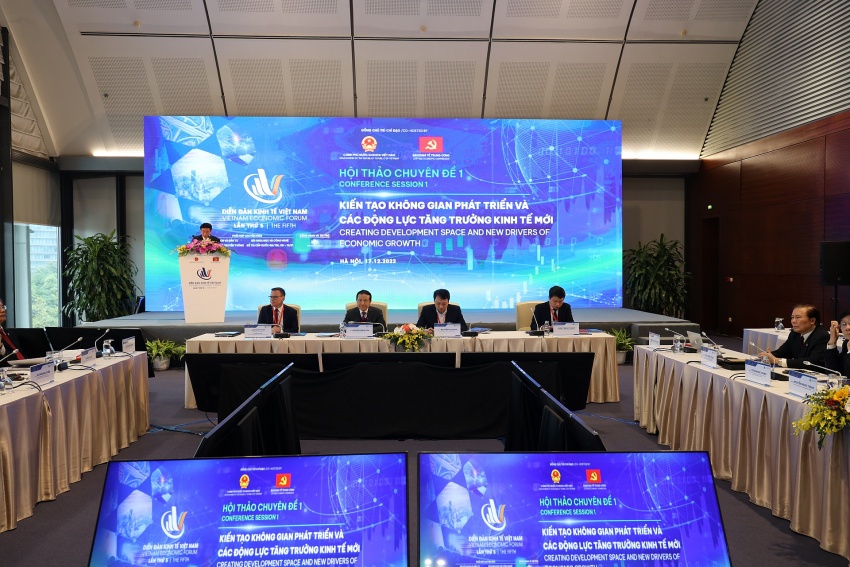 |
| An exciting conference gets underway |
At the conference, speakers and participants discussed many urgent emerging issues relating to political, economic, and social significance.
According to the organisers, the opinions, recommendations, and suggestions of the delegates, experts, and scientists at the conference will be gathered and reported to the government. They also were essential foundations for proposing mechanisms, policies, and solutions to exploit the new development opportunities, strengthen and effectively promote growth drivers to support the economy to overcome difficulties, and develop sustainably in 2023 and the following years.
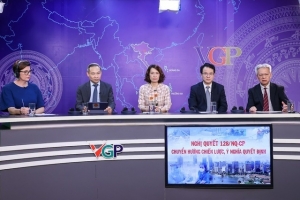 | Resolution 128 key to promote economic growth The government’s Resolution No.128/NQ-CP on safe, flexible adaptation to and effective control of COVID-19 is considered a key to fostering economic growth thanks to flexible solutions. |
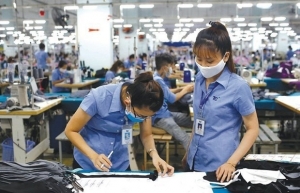 | Vietnam contributes importantly to ASEAN’s economic growth: ASEAN Deputy Secretary-General Deputy Secretary-General for ASEAN Economic Community for 2021-2024, Satvinder Singh, has affirmed that Vietnam is one of the strongest contributors to ASEAN’s dynamic, resilient economy and is a very critical partner for ASEAN’s integration. |
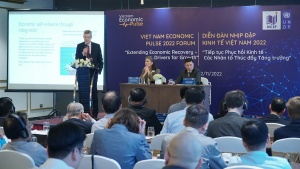 | Sustaining economic recovery and prospects for growth in 2023 Flexible policies and a successful COVID-19 vaccination campaign have resulted in impressive progress in Vietnam’s economic prospects this year. But the road ahead is paved with challenges. Risks to growth in the future, largely related to external factors, have multiplied. |
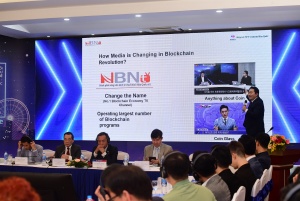 | Discussing blockchain development in Vietnam The tech investment event on November 28 opened opportunities for participants to discuss the legal policy framework for the sector in Vietnam and South Korea. |
What the stars mean:
★ Poor ★ ★ Promising ★★★ Good ★★★★ Very good ★★★★★ Exceptional
Related Contents
Latest News
More News
- The generics industry: unlocking new growth drivers (February 04, 2026 | 17:39)
- Vietnam ready to increase purchases of US goods (February 04, 2026 | 15:55)
- Steel industry faces challenges in 2026 (February 03, 2026 | 17:20)
- State corporations poised to drive 2026 growth (February 03, 2026 | 13:58)
- Why high-tech talent will define Vietnam’s growth (February 02, 2026 | 10:47)
- FMCG resilience amid varying storms (February 02, 2026 | 10:00)
- Customs reforms strengthen business confidence, support trade growth (February 01, 2026 | 08:20)
- Vietnam and US to launch sixth trade negotiation round (January 30, 2026 | 15:19)
- Digital publishing emerges as key growth driver in Vietnam (January 30, 2026 | 10:59)
- EVN signs key contract for Tri An hydropower expansion (January 30, 2026 | 10:57)

 Tag:
Tag:




















 Mobile Version
Mobile Version